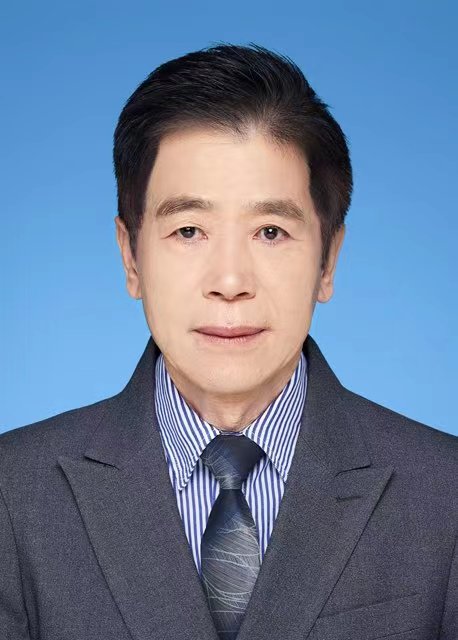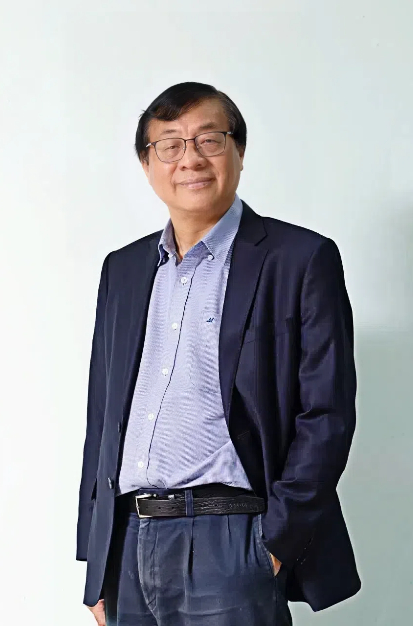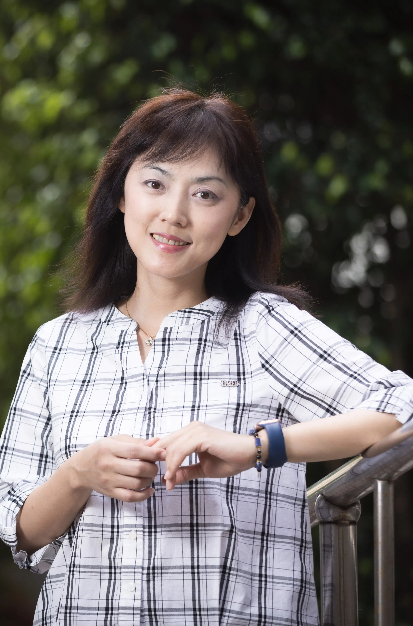
Professor Chen Mingxuan
Jiangnan University
Chen Mingxuan, a second level professor at Jiangnan University, is a renowned teacher and doctoral supervisor in Jiangsu Province; Former deans of Normal College, Education College, and Humanities College at Jiangnan University; The current Vice Chairman of the Teaching Guidance Committee for Educational Technology of the Ministry of Education, a member of the Expert Committee for Basic Education Curriculum Textbooks of the Ministry of Education, the Vice Chairman of the Information Technology Education Professional Committee of the China Education Technology Association, and the Vice Chairman of the Film and Television Media Professional Committee of the China Education Technology Association. Main research areas: Theory and Practice of Digital Education, Understanding Learning and Cognition Technical support for learning and teaching.
Empowering Intelligence: The Reconstruction of Education from Knowledge Transmission to Future Wisdom
The report discusses the core proposition of where education should head in the era of digital intelligence and how AI can empower educational innovation. It argues that the widespread application of artificial intelligence technology has diminished the value of "knowledge memorization," while higher-order cognitive abilities and adaptive wisdom have become the key competencies for humans to thrive in the future. As AI continues to surpass human skills, education must undergo a disruptive transformation, focusing on cultivating students' future wisdom. The report offers a unique perspective on the new implications of smart education, proposing that collective intelligence can be enhanced through human-computer collaborative models, such as large-scale AI systems. It advocates for a teaching paradigm that emphasizes "problem-led, multi-dimensional interaction and technology-empowered instruction" to shift from knowledge transmission to the cultivation of future wisdom. Finally, the report presents typical teaching cases supported by large AI models, showcasing the practical process and outcomes.
under update

Professor Tak-Wai Chan
National Central University
Tak-Wai Chan is Chair Professor at National Central University in Taiwan. A visionary in the field of digital learning, he originated the concept of AI learning companions and developed a prototype in 1988. By 1992, he built the world's first dedicated networked learning system for collaborative learning and competitive learning games. In 2000, he established EduCity, the largest online learning community in the world. In the 2000s, he was at the forefront of research on intelligent classrooms, one-to-one technology-enhanced learning, and mobile learning. Collaborating with international researchers, he proposed the notion of Seamless Learning in 2006, describing the crucial impact of the Internet on learning. To support the long-term transformation of Asian education from examination-driven to interest and creation-driven, he developed the Interest-Driven Creator (IDC) Theory with Asian scholars in 2018. Recently, in response to the rising frequency of global conflicts and unprecedented challenges confronting humankind, he has been promoting the concept of Global Harwell (a term combining 'harmony' and 'wellbeing') alongside international researchers, as a possible universally shared educational goal. Over his career, Chan has been building various platforms for researchers and practitioners. He was a key co-founder of the ICCEs conference series in 1993 and the GCCCEs in 1997. He also founded the Association for Reading for Tomorrow in 2016 and a mini-experimental school based on IDC Theory in 2017, as the model for the future Asian education.
Why Education? What’s Education For? ‘Global Harwell’ and ‘General Artificial Companions’ Co-Shape the Future
The chaotic state of the world today resembles the ancient Spring and Autumn and Warring States periods. While these historical conflicts were once confined to the Chinese nation, they now encompass the entire globe. As educators, we must ask: Why education? What is the fundamental reason behind its existence? What is its essence? What values does it hold? After more than two thousand years of accumulated wisdom from China’s history, have we found any answers—or even just temporary ones?
If we go further: What’s education for? What are its ultimate purposes and goals? What should we strive for? In which direction should we move? Is it for ourselves, for others, for our own country—or also for the entire world? How should we implement and actualize these goals? Can we provide some possible answers?
As for ‘General Artificial Companions,’ like all other technologies, they are merely tools to assist in achieving educational goals—in this case, the ‘Global Harmony and Wellbeing Goal’—making the process more effective and excellent. However, due to the immense power of AI, in the foreseeable future, both the concept of ‘Global Harwell’—a term blending harmony and wellbeing—and that of ‘General Artificial Companions’ will co-shape the future of education and humanity.
The questions Why education? and What’s education for? compel us to reflect deeply on the nature and purpose of education. Ultimately, they are no different from the fundamental human inquiries: Why life? and What’s life for?
under update

Professor Art Graesser
University of Memphis nbsp; Department of Psychology and the Institute of Intelligent Systems
Art Graesser is a professor in the Department of Psychology and the Institute of Intelligent Systems at the University of Memphis, as well as an Honorary Research Fellow at University of Oxford. He received his Ph.D. in psychology from the University of California at San Diego. His research interests question asking and answering, tutoring, text comprehension, inference generation, conversation, reading, problem solving, memory, emotions, artificial intelligence, computational linguistics, and human-computer interaction. He served as editor of the journal Discourse Processes (1996–2005) and Journal of Educational Psychology (2009-2014), as well as presidents of 4 societies, including Society for Text and Discourse (2007-2010), the International Society for Artificial Intelligence in Education (2007-2009), and the Federation of Associations in the Behavioral and Brain Sciences (2012-13). He and his colleagues have developed and tested software in learning, language, and discourse technologies, including those that hold a conversation in natural language and interact with multimedia (such as AutoTutor) and those that analyze text on multiple levels of language and discourse (Coh-Metrix and Question Understanding Aid -- QUAID). He has served on five panels with the National Academy of Sciences and four OECD expert panels on problem solving, namely PIAAC 2011 Problem Solving in Technology Rich Environments, PISA 2012 Complex Problem Solving, PISA 2015 Collaborative Problem Solving (chair), and PIAAC Adaptive Problem Solving 2021.
Conversations with Computer Agents in the Era of Generative AI
The first half of this presentation provides an update on my recent work on computer agents in learning and assessment environments. This includes a version of AutoTutor that helps adults learn comprehension skills, electronics, and various subject matters. These systems have three-party conversations, called trialogues, where two agents (such as a tutor and a peer) interact with the adult. This work is compatible with the intelligent tutoring system architecture of the Generalized Intelligent Framework for Tutoring (GIFT, gifttutoring.org). The second half of the presentation provides observations, reflections, and questions about the use of Generative AI (large language models, ChatGPT) in the development of learning and assessment applications with conversational agents. I will comment on some current projects of other researchers that are exploring how Gen-AI can enhance the development, quality, and scope of conversation-based learning and assessment.
under update

Professor Hui-Chun Chu
Soochow University nbsp; Distinguished Professor of the Department of Computer Science and Information Management; The chairman of the Institute of Human-Centered Artificial Intelligence
Dr. Hui-Chun Chu' s academic specialties include mobile and ubiquitous learning, game-based learning, flipped learning, technology-assisted healthcare education, AI in medical diagnosis and education, and knowledge engineering in education. Dr. Chu has published more than 167 academic papers, including 72 academic journal papers, in which 40 papers are published in well-recognized SSCI journals. Owing to the distinguished academic performance and service in e-learning, she received the Annual Young Scholars Outstanding Researcher Award--Ta-You Wu Memorial Award from the Ministry of Science and Technology in 2014. In addition, she received the Outstanding ICT Elite Award in 2020. She also served as the Associate Editor of IEEE Transactions on Learning Technologies (SSCI, Q1) since 2015. She has also served as the guest editor of Interactive Learning Environments (SSCI, Q1) in 2013 and 2016. Moreover, Dr. Chu received the reward of “The top 50 Flipped Learning leaders in higher education worldwide” in 2018.
Research Design and Innovative Teaching Models Integrating Generative AI with Educational Technology
The development of generative AI brings new possibilities to education, and its integration with emerging educational technologies serves as a crucial driver for teaching innovation. However, effectively designing research to explore the practical benefits of applying generative AI in educational settings and creating impactful teaching models remains a challenge. This speech will focus on the application of generative AI in educational technology, analyzing its impact on learners, educators, and educational policymakers. The content will include examples of innovative self-regulated learning models, specific methods for educational research design, and strategies for evaluating research or teaching performances. It aims to provide practical guidance for scholars in the fields of education and technology, inspiring further teaching innovation and applied research opportunities.
under update
